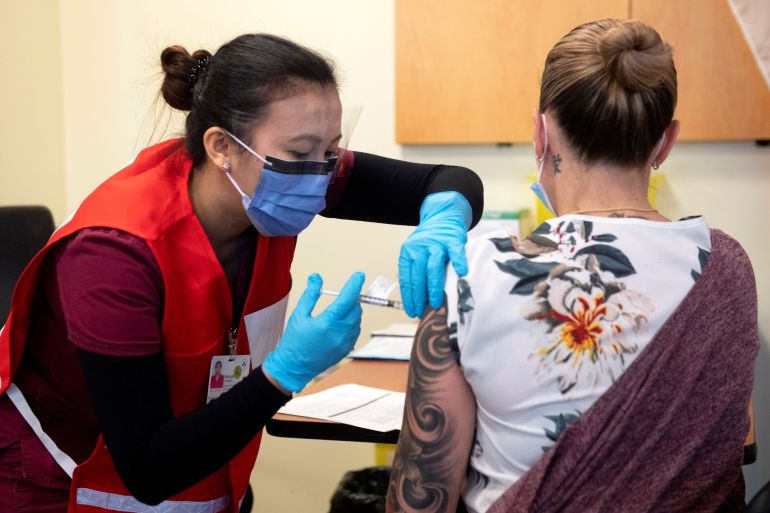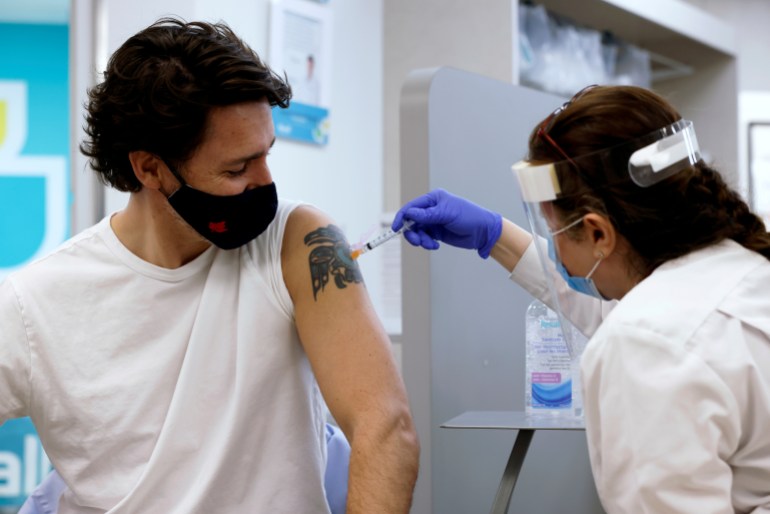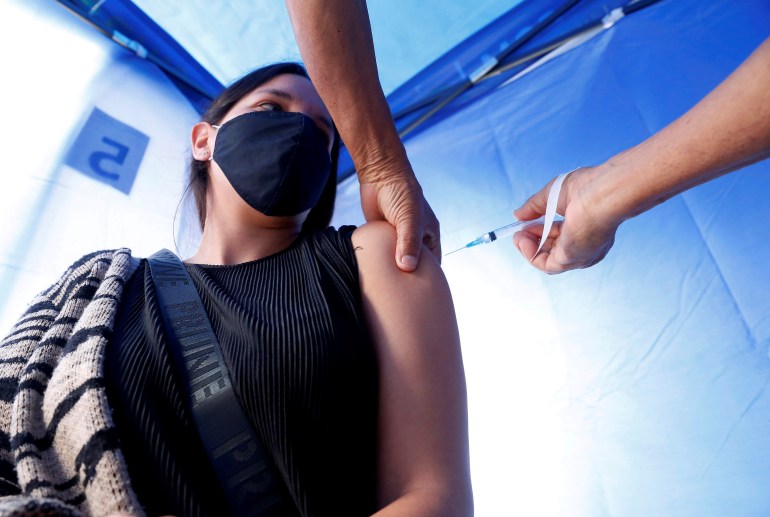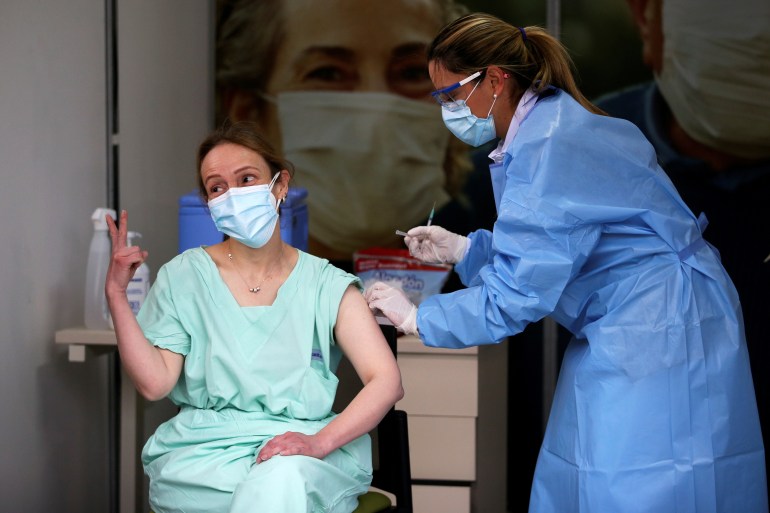In a first, Canada’s COVID infection rate surpasses the US
About a third of Americans are now fully vaccinated, compared with close to 3 percent of Canadians.

Canada’s coronavirus infection rate surpassed that of the United States for the first time since the pandemic began, the Pan American Health Organization (PAHO) said on Wednesday, amid a spike in cases and stalled vaccination efforts across the Americas.
Ontario, Canada’s most populous province, reported over 3,500 new COVID-19 cases on Monday and a 10.9 percent positivity rate – an all-time high, according to Canadian media. In response, the province requested assistance from the nation’s armed forces.
Keep reading
list of 3 itemsFailure to contain COVID jeopardises Latin America recovery: IMF
COVID surge stirs unrest in parts of Latin America
Meanwhile, cases have been on the decline in the US, after the nation began making headway in its vaccination campaign. About a third of American adults are now fully vaccinated, according to official figures and on Tuesday, the US eased its mask wearing guidelines.

According to Our World in Data, the US is currently reporting close to 167 new COVID cases per one million people, while Canada’s rate is above 212.
Although Canada has bought enough vaccines to cover its population of 37 million, it has struggled with actually procuring enough doses, due to global shortages and stalled shipments. So far, it has fully vaccinated close to 3 percent of its population.
The disparity comes amid region-wide surges of cases. In a news briefing on Wednesday, PAHO Director Carissa Etienne said 1.4 million new COVID-19 cases were reported during the past week across the Americas, and more than 36,000 have died from the disease.
One in four COVID-19 global deaths, Etienne said, took place in the Americas.
“Many health systems especially those in South and Central America are still struggling to cope with the influx of patients,” Etienne said.
“Nearly every country in Central America is reporting a rise in infections,” she said, adding that cases are also surging in the Caribbean.
Peru, Bolivia, Argentina and Uruguay are also reporting a rise in new cases, she said, adding that infections in Colombia will soon reach January levels while intensive care unit beds were running out in major cities.

Many countries in the region are relying on COVAX, the global vaccine sharing programme for low- and middle-income nations, to vaccinate their population.
Etienne said more than 317 million COVID-19 doses have been administered across 49 countries and territories in the region, seven million of them through COVAX.
She said seven million more doses will be arriving in nine countries between May and June as part of the second deployment of shots.
During the briefing, she made a plea to countries with an excess supply of doses to donate them to the region.
“We want to urge countries with extra doses to consider donating a significant portion of these to the Americas where life-saving doses are desperately needed and will be promptly used,” Etienne said.
Amid increased pressure to support global vaccination efforts, US President Joe Biden announced on Monday that the US would share 60 million doses of the AstraZeneca vaccines with other countries.

The US has not given authorisation to use the AstraZeneca vaccine in the US, and many countries in the region that have authorised it have been urging Biden to ship them.
Meanwhile, Chile, which has fully vaccinated over a third of its population, according to Our World in Data, has been hailed as a regional vaccination success story.
This week it became one of the first nations to begin vaccinating pregnant women, reports the Reuters news agency. The UK updated its guidelines to include pregnant women earlier this month and the US Centers for Disease Control and Prevention recommends that pregnant women get vaccinated.